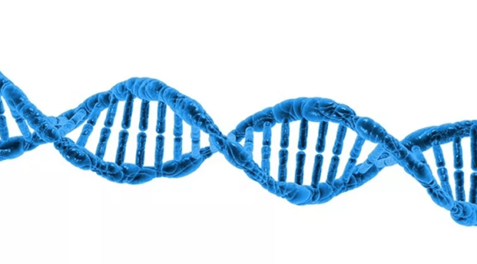In Part 1 of this post, we looked at the most pervasive and damaging lie about Creativity:
CREATIVITY LIE #1: The Genetics Lie
Creativity is Inborn. Aka: I’m Just Not That Creative
To help refute this common belief that “some people are just born more creative than others,” I cited the famous study by George Land showing the radical tendency toward creative downturns as children grow up. This has been, by the way, later supported by equally famous studies by Teresa Amabile and others (that we’ll look into in future posts) that show clearly that Creativity is a trait we unlearn as we get older – a point supported by comments from many famous creative figures throughout history.
Yet there is further evidence for the devil’s advocate position. A recent study in PLoS ONE found that a particular cluster of genes related to brain plasticity directly correlated with musical creativity. In other words, people who more naturally break and form new connections between cells within the brain were more naturally musical. These people had duplicate DNA strands that affected the processing of serotonin. This seems to bring greater likelihood to genetics as a factor in Beaty’s results. A later study from the Medical University of Vienna seems to strengthen this evidence, finding that higher serotonin levels also increases brain connectivity. So are people who naturally have higher serotonin levels more creative?
Yet there are serious problems with using these studies to conclude there’s a creativity gene.
First of all, musical ability is not the same as creativity. There are many very non-musical people who are extremely creative. And I don’t know anyone who would refute the idea that some people are more naturally musical than others. Creativity is an overall capability, while musicality is a very specific skill. I can’t draw to save my life, and other people I know seem to just have a knack for it without any training. It does not mean they are more naturally creative than me.
And then just to really confuse things, there is this study from Cornell University that found that creative people tend to have a smaller corpus collosum, thus REDUCING brain connectivity. That study states that this separation of the two brain halves leads to “the incubation of ideas that are critical for the divergent-thinking component of creativity” and that it is the momentary inhibition of this hemispheric independence that accounts for the illumination that is part of the innovative stage of creativity.”
So which is it? Do creative people have MORE connected brains, allowing them to switch between divergent and convergent thinking more rapidly? Or do they have LESS connected brains, allowing them to incubate ideas in isolation before bringing them together?
Then there is one of the world’s largest population-based studies on individuals with mental illness, conducted by Sweden’s Karolinska Institute in Stockholm over the past forty years. As part of that, they have discovered that less severe mental illnesses such as bipolar seem to enhance creativity. This does seem to align with empirical experience. Many famous creatives were and are diagnosed bipolar. I’m diagnosed bipolar myself. The study also investigated the siblings of participants with psychiatric disorders but who did not have the same disorder and found that they did share an increased creative ability.
And again – hold your horses. Isn’t it possible that twins tend to be more creative because they were raised a certain way? And more importantly – is MORE serotonin an indicator of higher creativity, as in the Vienna study? Or is LESS serotonin the thing, as bipolar people exhibit?
Why does it even matter if creativity is genetic? The bottom line is, if creativity is a matter of nurture, not nature, then any limits on your creativity are limits you put there yourself over the course of your life. And thus, you can remove them. Your creativity, in short, is not bound by some natural affinity you just don’t have. It’s a convenient lie that lets people off the hook for not being creative enough.
Where the scientific evidence remains so conflicted I, like many experts, am confident sticking with the insight of people who live extremely creative lives, and/or who study creativity as their passion and focus.
Almost universally, such thinkers are very clear that there is no clear source for an inherited tendency for creativity. Rather, that creativity is a result of circumstance, and choice.
Michael Michalko, author of numerous books on creativity (http://creativethinking.net) puts it very well. “The only difference between people who are creative and people who are not is a simple belief. Creative people believe they are creative. People who believe they are not creative, are not.”
The lesson is straightforward. Stop saying you just aren’t creative, or creative enough. Get off your ass and start working on your creativity the same way you would study for exams or go to the gym.
Why? For the same reason that I call this Lie the MOST important lie to conquer. And why exactly is it most important? Well, we’ll look at that further in the next installment of this series, when we pick apart Creativity Lie #2.
Over my upcoming blogs, I will look at the top 5 most impactful lies on creativity. The ones that most limit you in becoming more creative, and thus more successful in all aspects of your life.
